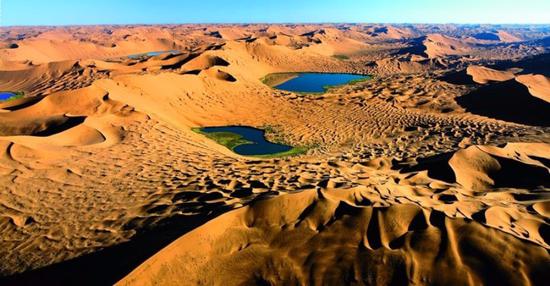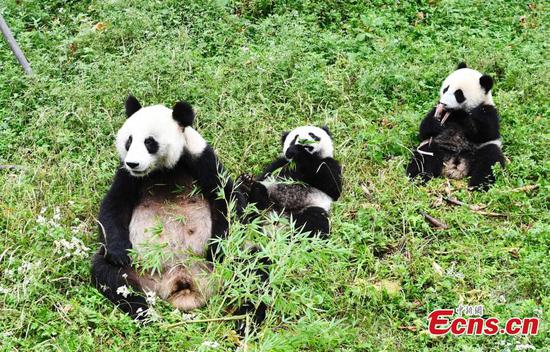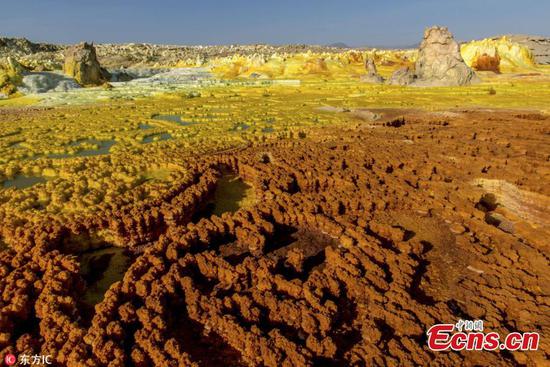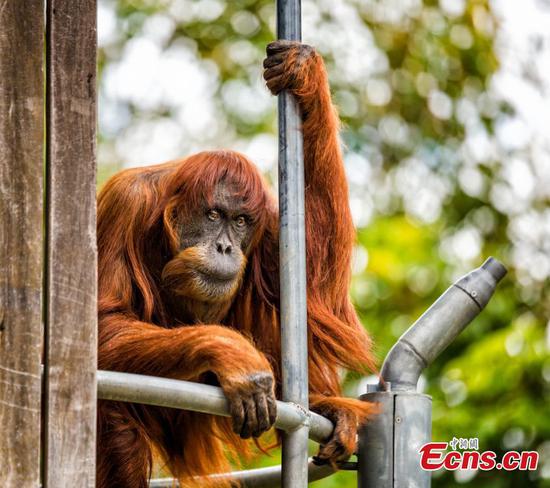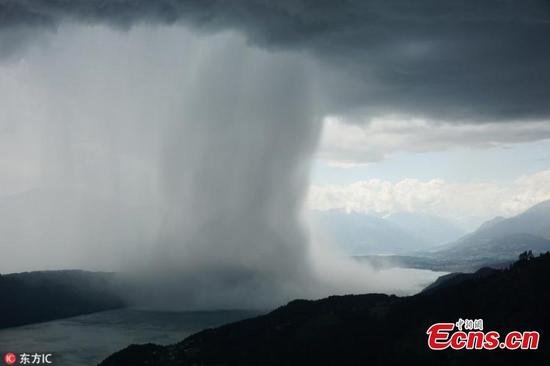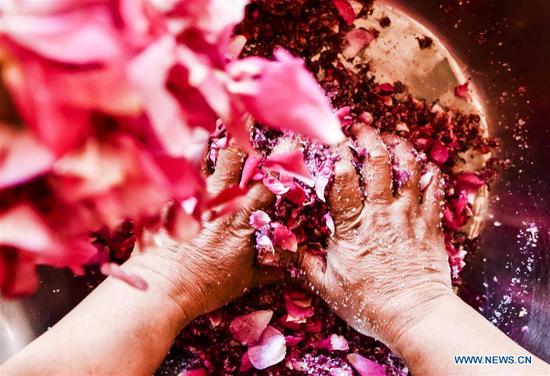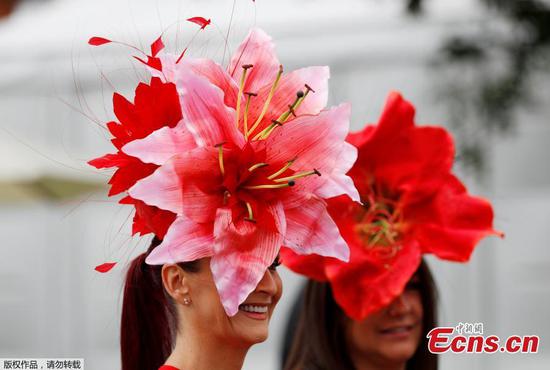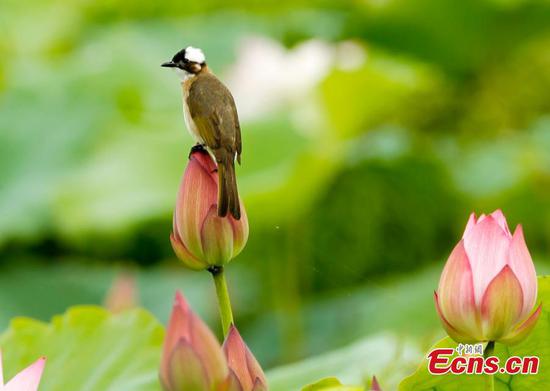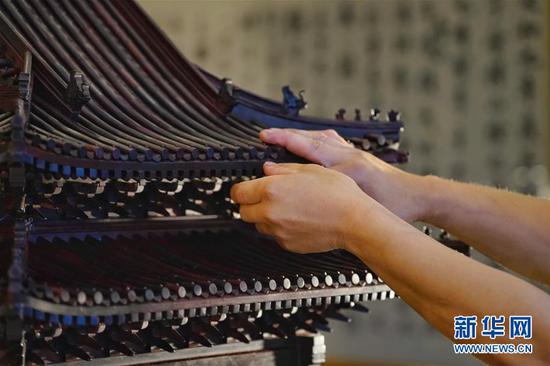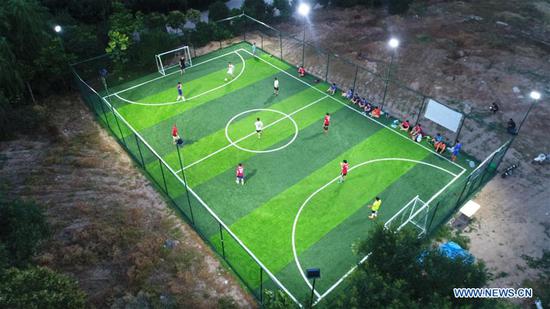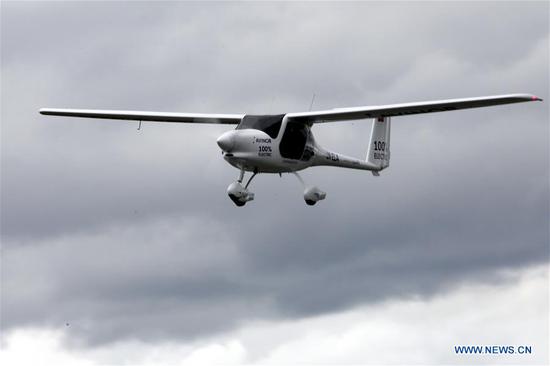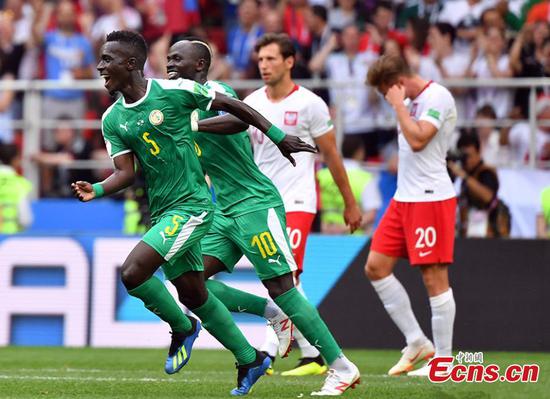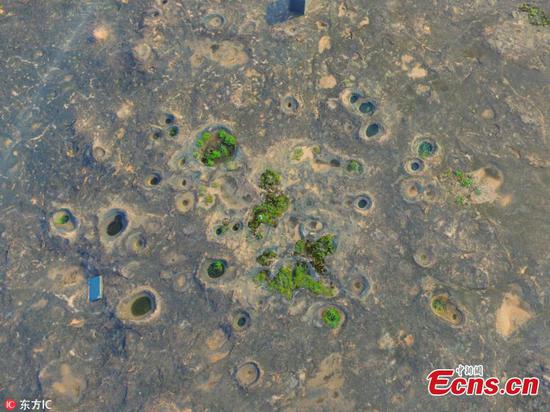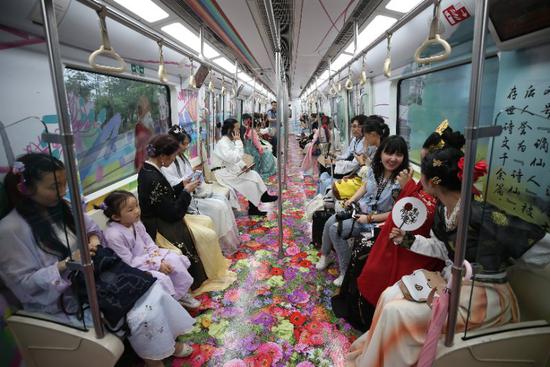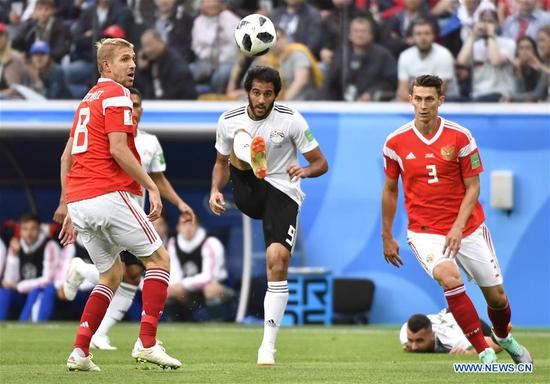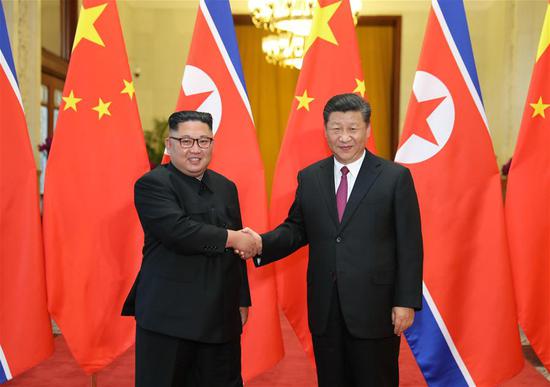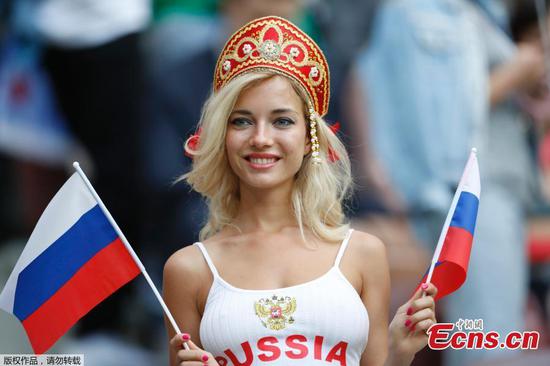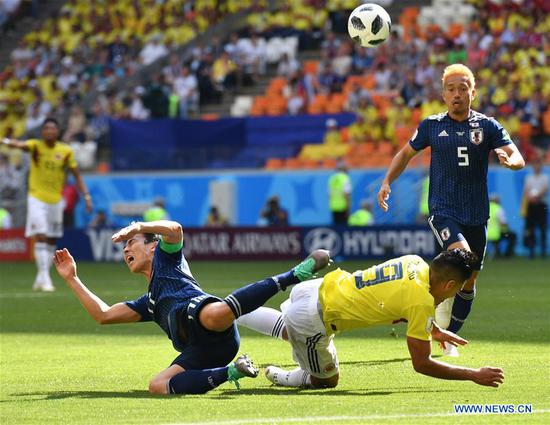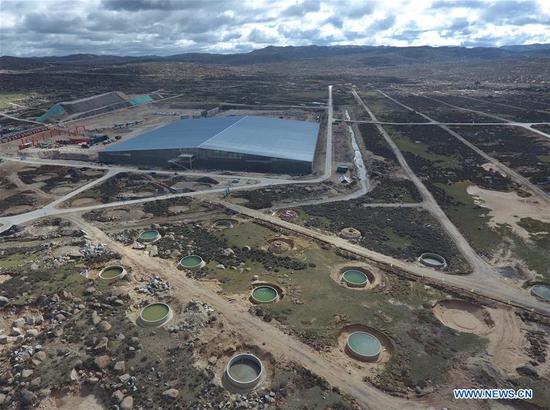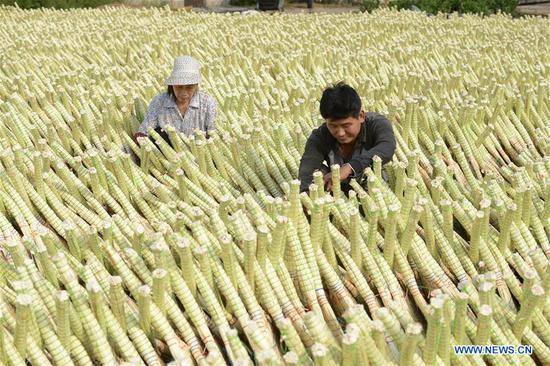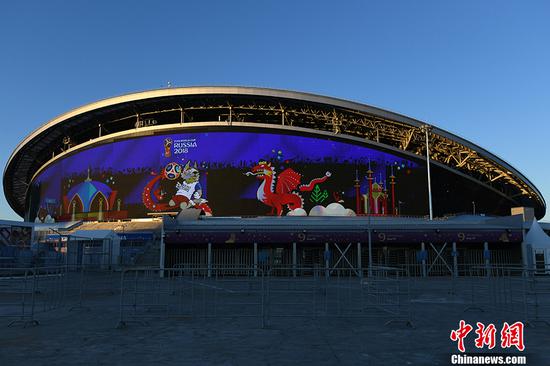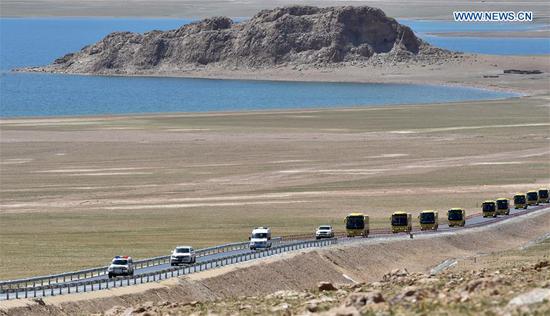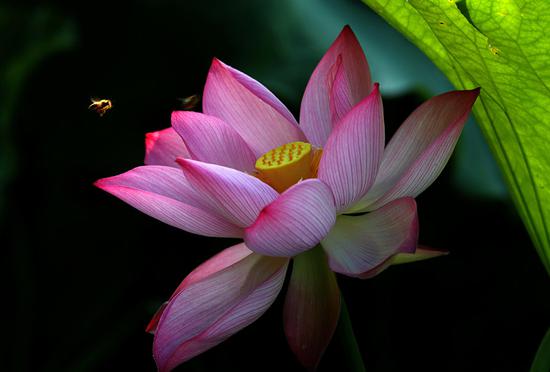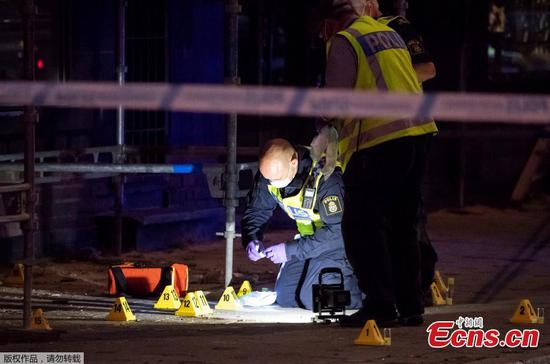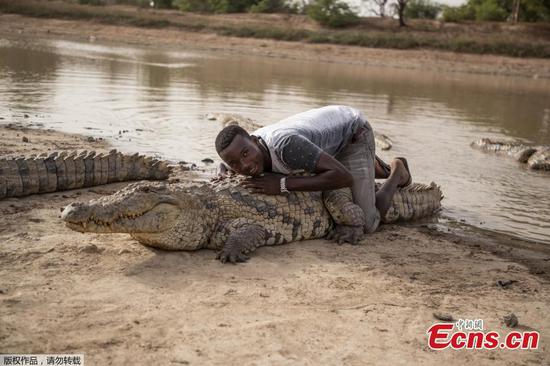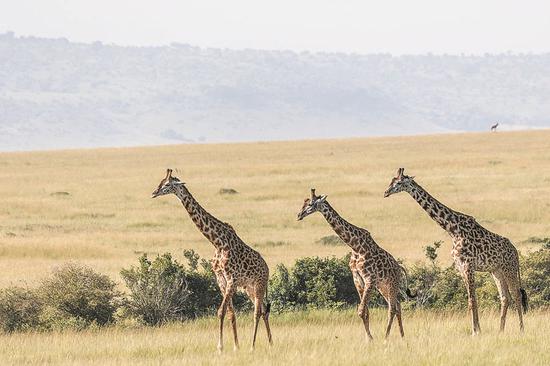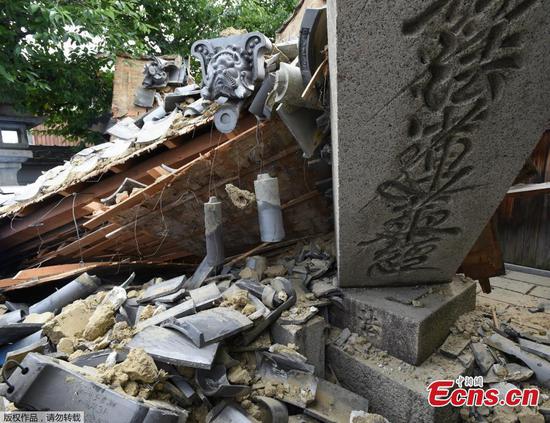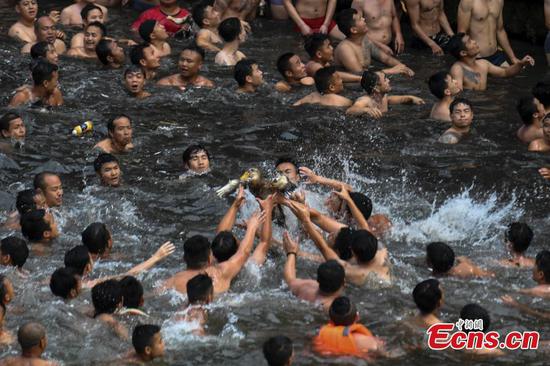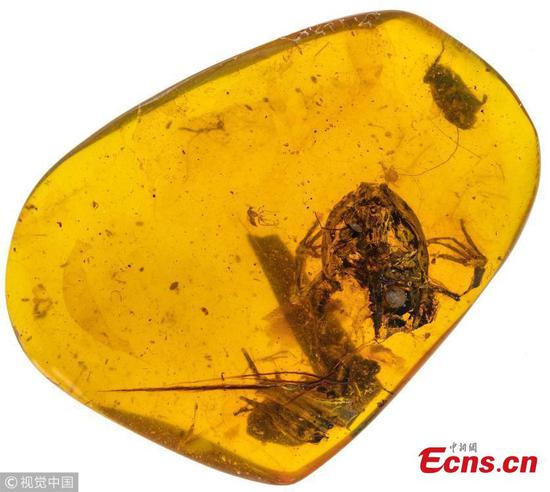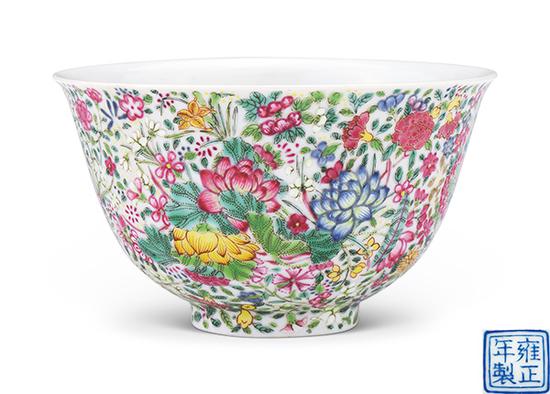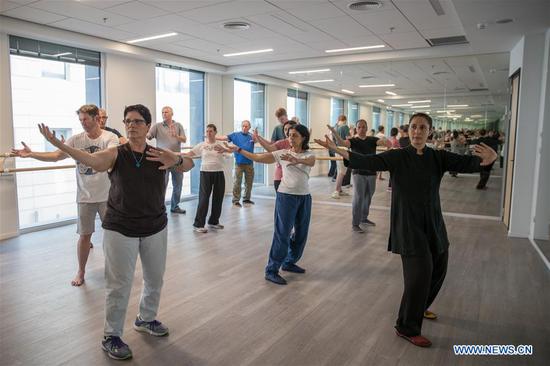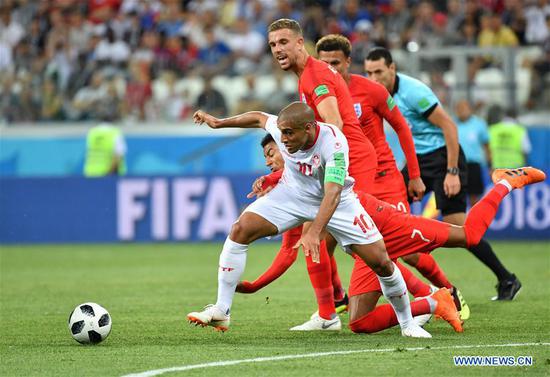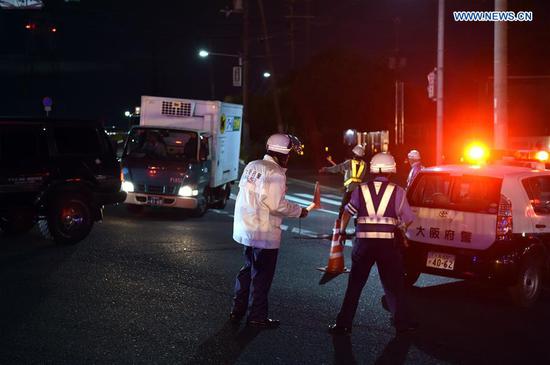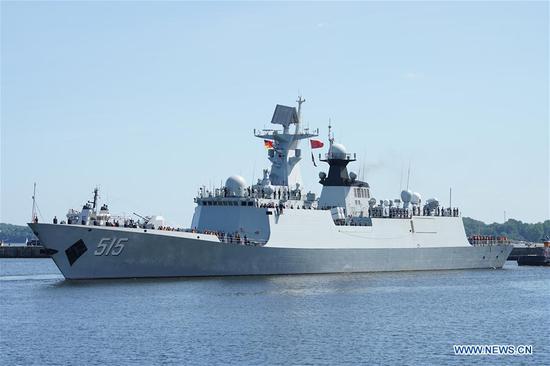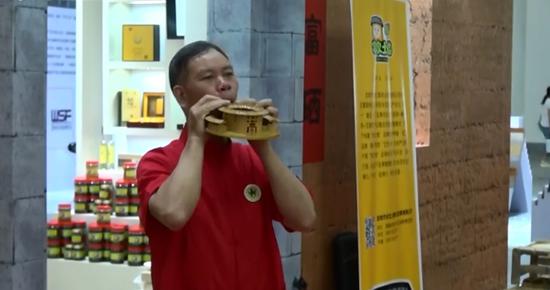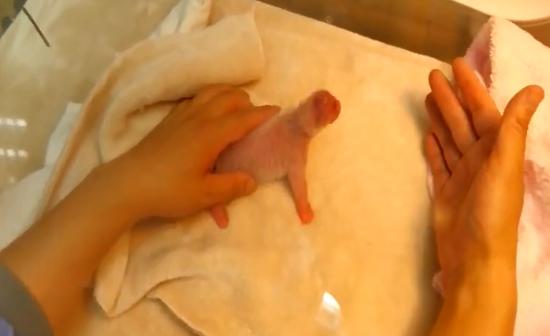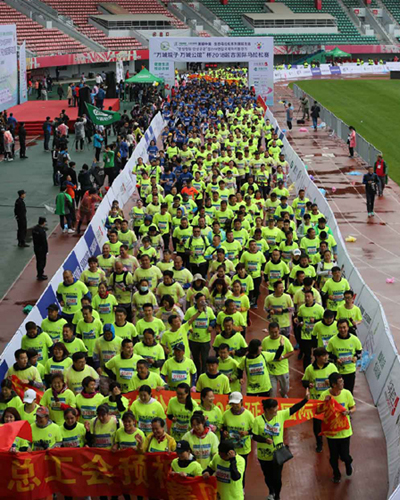
Participants race in the Yanji marathon June 17, 2018. (Photo provided to chinadaily.com.cn)
More than 15,000 runners from home and abroad gathered in Yanji city and raced an "ecological marathon" with an ethnic focus to inaugurate the city's first-ever international running exhibition on Sunday.
Yanji, capital city of Yanbian Korean autonomous prefecture and located in the east of Northeast China's Jilin province, is home to 300,000 ethnic Koreans and the country's largest Korean community.
The morning drizzle did not stop participants from exploring the route, which featured Korean ethnic and prehistoric elements. Dinosaur fossils were discovered at the city's Longshan Mountain in 2016, and Yanji is planning to build the nation's top dinosaur theme park.
Organizers said they may emboss finishers' medals with different dinosaur species discovered in the city in coming marathons to provide a collectible souvenir.
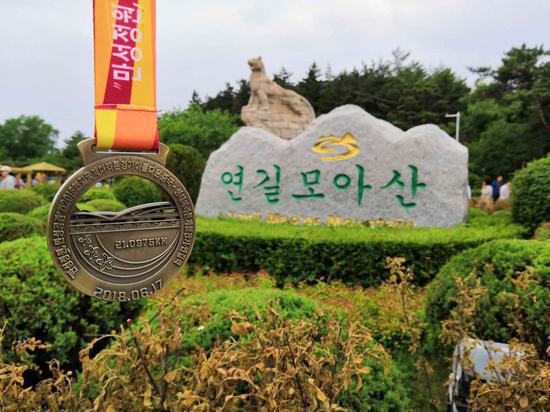
Africa dominated both full marathons, with Kenyan and Ethiopian runners finishing in the top three. Chinese runners found half-marathon glory.
Chinese elite runners led the run and inspired participants. Chen Shuang, China's free skiing world champion, and Yun Yanqiao, China's first marathon winner in the non-professional group at the 2017 National Games, were among the running celebrities.
Wang Chengrong, China's prestigious long-distance running coach and husband of Sun Yingjie, China's world half-marathon champion and three-time Beijing Marathon champion, ran with his eight-year-old son Wang Boxu in a family mini-run. Sunday marked Father's Day and organizers issued a special award for father runners. The three-day Dragon Boast Festival national holiday from June 16 also gave a boost to local tourism.
A camping carnival was held on the eve of the run as a runners' salon. Runner groups and celebrities across the country gathered and shared their running stories. Cheng Huaiyu, China's elite cross-country running lover who was the country's first to finish all four desert races of the Atacama crossing series, said racing means more than winning — it also means respecting life and nature.
The city is culturally and ethnically diverse, as it lies on the border with the Democratic People's Republic of Korea and Russia. It boasts a large population of soccer, skiing and traditional sports like Korean ethnic wrestling, swing and seesaw. This version of wrestling has been listed as one of the country’s national intangible heritages.









